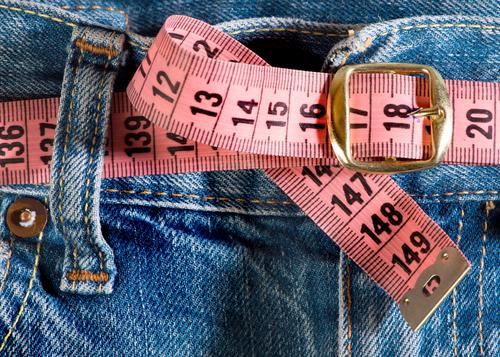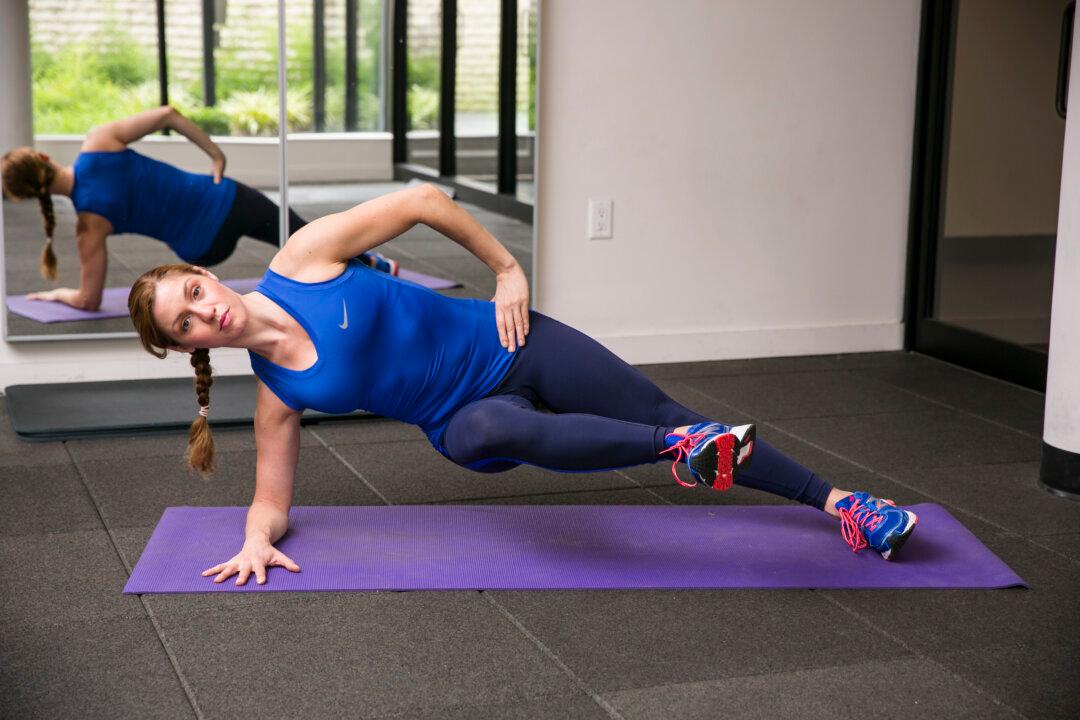Is one of your 2014 New Year’s resolutions to lose weight? If so, how did the first month go?
Did you meet your January target of pounds lost or number of fitness classes attended? More importantly, how do you feel about your weight-loss self?
If you find yourself struggling or feel as if you are meeting your goals by dint of will power that is sapping your enthusiasm, then read further.
Unsuccessful weight-loss attempts often have nothing to do with lack of information or will power, but more to do with not having the right mindset and not finding the right combination of solutions that work for you.
Oftentimes, people who wish to lose weight think about how they must change their diet or get to the gym, but fail to succeed simply because they never took into account their lifestyle choices, or the underlying patterns that led to their being overweight in the first place.
In order to be successful at getting to your optimal weight, you must build a skill set that supports weight management in four key areas of life: lifestyle, psychology, diet, and exercise.
When you strengthen all four skills, you will be more successful at losing weight and maintaining your weight loss for a lifetime.
Lifestyle
There is a myth that weight loss can be easy, that it doesn’t have to be hard. I’ve contributed to that myth because when I finally got the formula right for myself, weight loss suddenly felt easy.
But the reality is that in order for weight loss to ever feel easy, we must make the commitment to change, and big changes are always hard. However, once the change is made and you are living it, it becomes so easy that we often forget how hard it once was.
So by broadening your weight-loss strategy to include changing other areas of your life, you may very well find that your body will easily transform. Unresolved issues in another area in your life may be the very thing that is inhibiting your weight loss. Although changes in your lifestyle may be tough to make, once you’ve made them, you will reap the rewards of ease and joy.
Start by taking a look at your current lifestyle. Where are the trouble spots? Take a good, honest look at your work, relationships, home, spirituality, and finances. Assess how they interweave with each other and what changes would make your life more balanced and harmonious.
For example, maybe you work long hours and don’t give yourself time to eat during the day, leaving you exhausted and burned out by the evening. You have the best of intentions to get fit and lose weight, but every evening you find yourself exhausted and hungry.
So instead of going to the gym, you pick up some fast food and eat it in front of the TV. Because you are so hungry by the time you get home, you end up wolfing down your food, which leaves you feeling bloated, tired, and fat.
If this is your situation, then you need to make some changes in your schedule, whether that means going to the gym before work or managing your time at work more effectively so you have more time to eat.
If you aren’t getting enough sleep, you have likely thrown your metabolism out of whack and are susceptible to more food cravings since the hormone responsible for triggering your feeling of fullness is suppressed.
Or maybe you aren’t leaving enough time in your week to shop and prepare home-cooked meals. Home cooking can add a lot of simplicity and love to your life. It’s nurturing, and it is an easy way to maintain control over what goes into your body.
Restaurants are set up to encourage you to order what they wish you to order. They fill their foods with more salt and flavoring than you need, easily leading to overindulgence.
Stress and unhappiness are other major factors that prevent weight loss. Take a look at your relationships. Are they working for you? Is there anything that needs to change?
How about your home? Is it weighed down with clutter? Your body will physically react to having space, beauty, and organization in your life.
Take an inventory of your life to assess which areas are unhealthy. By doing this, your life will become more stress-free. When we are able to control our stress, hormones like cortisol decrease, leaving us with more energy and allowing the fat that has collected over our bellies (thanks to the high cortisol levels) to melt away.
Psychology
I remember a time when I was so displeased with my body that I was willing to sacrifice foods I enjoyed and loved in order to lose weight. I was afraid to accept myself because if I did, I thought I would lose the motivation to follow through with my diet and exercise routines.
I carried that belief for years despite the fact that it wasn’t really working for me. It wasn’t until I started accepting myself and how I looked that I was actually able to succeed at losing weight.
Self-loathing is a stress that ultimately leads us to overeat, quit our diet, and become depressed. Once I insisted on self-acceptance, weight loss no longer became this hard, heavy thing tied to my confidence. Instead, weight loss became something I had a choice about, something I could do without self-defeating mental agony.
So ask yourself how you are being with yourself throughout the day. How are you being when you eat? When you exercise? And when you make wellness choices? Are you being a punisher? Can you be someone who is nurturing and cares for your best self?
So often weight is also tied into psychological factors like protection, security, comfort. For some people, when they lose weight, they can’t psychologically bear it and end up putting it back on.
For example, you may be a woman who had a traumatic experience involving attention from men. When you lose some weight, you get more attention and because this is scary for you, you may end up putting the weight back on to give you a sense of security.
Take a good long look at the history of your psychological relationship with your body. What needs to transform in order for you to approach weight loss with empowerment and pleasure?
Nutrition
Rather than focus on reducing your caloric intake to lose weight, focus on improving your overall diet so you feel healthier, more energized, and more satisfied.
People who develop healthy eating habits are able to maintain or lose weight with much more ease than those who don’t.
So give up your “diet mentality” and focus on sustainability. What will support your weight, health, and energy in the long term? Is it enjoyable? If not, what needs to be done to make it more enjoyable? Maybe you need to look up some good recipes for vegetables or whole grains, or perhaps even sign up for a healthy-eating cooking class.
Emphasize a variety of vegetables, fruits, and legumes while reducing or eliminating all artificial ingredients, sugars, and processed flours. Incorporate some good-quality fat, fiber, and protein into each meal and snack.
Clear out the junk from your pantry and fill it with nuts, seeds, whole grains, beans, extra virgin olive oil, and spices.
Finally, slow down. Chew your food well, eat with ease, and eat before you are too hungry. Stop eating when you are satisfied, not full.
If you think you already eat well and yet still struggle with your weight, consider tracking your food intake for a week or two to observe your patterns more carefully. Maybe certain foods you eat actually don’t sit well in your system.
For example, many people think yogurt is great for them. It is if you can tolerate dairy, but perhaps you are someone who is sensitive to dairy, and eating yogurt daily is causing bloating, gas, inflammation, or extra cravings. Track your symptoms and your diet to start to see what is or isn’t good for your unique body type.
Fitness
Exercise and movement allow us to be in tune with our bodies, which is essential when we are trying to make physical changes. Rather than focusing on exercising to burn calories or fat, focus on understanding your body and how to move it well and on improving your fitness level.
In order to improve your fitness level, you must challenge yourself. This may mean moving in a way that is different from what you are used to, or it may mean pushing yourself to get your heart rate going.
The more you move, the better your metabolism will be, the less sensitive you will be to certain foods, the stronger you will feel, and more you will be able to intuitively feel what foods and activities your body needs for peak health.
Tysan Lerner is a certified health coach and personal trainer. She helps women attain their body and beauty goals without starving themselves or spending hours at the gym. Her website is www.lavendermamas.com
*Image of jeans with tape measure via Shutterstock





